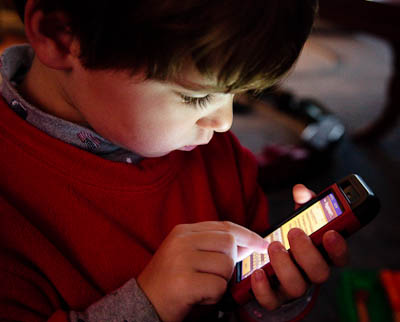This week, Lori Steed Sortino shares her experiences of raising her son, Daniel, who is Deaf. Lori’s blog, Deaf Son, Hearing Mother, emphasizes the positives. Daniel opened Lori’s eyes to a new world of possibilities. Despite the obstacles in his way, Daniel thrived and later became a successful college student. However, the journey wasn’t easy. Lori and her now ex-husband Joe fought to become advocates for their child and faced a great deal of resistance from the school district. While Daniel’s teachers wanted to help him, they were stuck in a system that was unresponsive to Daniel’s needs because of budget constraints. After her difficult experiences, Lori was inspired to work with a parent advocacy group to ensure that the needs of other Deaf children are being met. She emphasizes how critical it is for parents to join a network of support.
How to Improve Articulation
Pronunciation & Lisps Speech Therapy TechniquesYou’ve probably had this experience before: you’re at a playgroup or birthday party with your child, and you’re trying to converse with the other little ones there. But the kid’s speech is difficult to understand, and you have to call his parent over to interpret. Or maybe you have to guess a few times before you can figure out what your own child is saying. It’s perfectly normal for a young child to pronounce “room” as “woom” and “sun” as “thun.” Some children master most or all sounds by five years of age, while others master articulation by the age of eight. If you believe your child might be struggling with articulation, you can request an evaluation by a speech-language pathologist (SLP). If the SLP diagnoses your child with a speech disorder or delay, speech therapy can help improve articulation. You can also use some simple, fun activities at home to encourage proper articulation.
Types and Degrees of Hearing Loss
Hearing LossThere are three main types of hearing loss: conductive, sensorineural, and mixed. Conductive hearing loss occurs when there is a problem with the outer ear canal, and sound cannot effectively travel to the middle ear. A child with sensorineural hearing loss has damage to the inner ear. Mixed hearing loss is a combination of the two. In order to understand the different types of hearing loss, it is helpful to understand how people actually hear and interpret sounds.
Apps for Traumatic Brain Injuries: Communication
Speech Therapy TechniquesWhen your child was born, you probably dreamt up ways of giving him every possible advantage in life – from cloth diapering to the latest high-tech strollers. Unfortunately, life sometimes throws you a curve ball. It’s heart-wrenching when your child suffers a serious accident. A traumatic brain injury (TBI) can severely affect your child’s communication skills. Children who are recovering from a TBI often have trouble with social communication skills, such as taking turns in a conversation, responding to body language, using an appropriate tone of voice, and interpreting the nuances of conversation (i.e. sarcasm). Your child might also have trouble understanding both spoken and written language or finding the right words to express himself. Problems with writing, spelling, and reading are also common.
Despite your child’s injury, you can still give him every possible advantage by working with his care team, including a speech-language pathologist (SLP). Your child’s SLP will develop a treatment plan to improve his communication skills. These days, many SLPs are incorporating technology into treatment with the use of specialized apps. You can use apps at home to facilitate your child’s progress. Here are a few apps that can address some of the issues that can result from a TBI.
Preventing Congenital Hearing Loss
Hearing LossEach year in the U.S., thousands of babies are born with some degree of hearing loss. While not all types of hearing loss are preventable, protecting your baby’s hearing can begin before he is even born. You can’t change your baby’s genes, for example, but hearing loss can also be caused by factors other than genetics. Hearing loss can be caused by toxins like drugs taken during pregnancy and complications experienced during pregnancy. It can also be caused by infections. Talk to your doctor about having a toxin-free pregnancy.
When your baby is born, he will undergo routine hearing screenings. It’s also important to have your child’s hearing checked regularly as he grows. In the event that your baby has already been diagnosed with permanent hearing loss, consider alternative methods of communication. Take a sign language course, for example. You could also explore the use of Speech Buddies to facilitate communication as your child grows.





